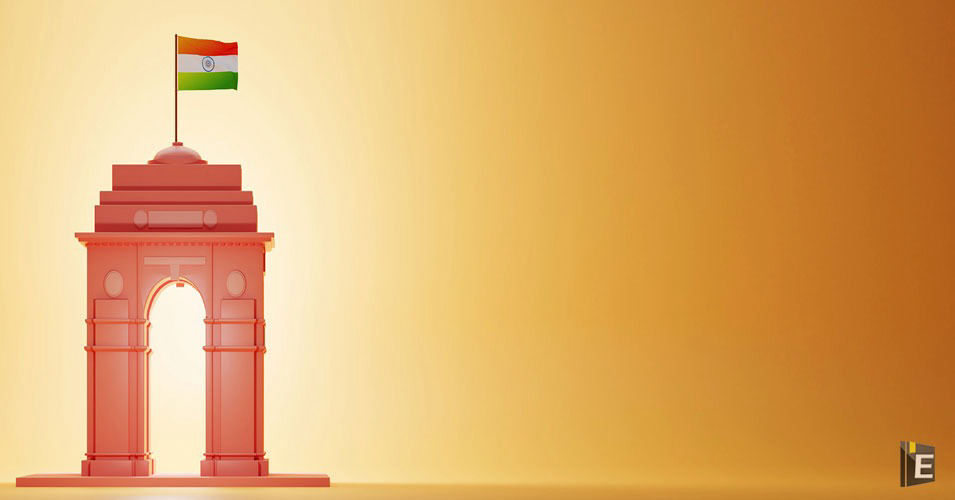Indian Constitution GK Questions and Answers

Being acquainted with the Important Indian Constitution GK Questions is incredibly important for the overall knowledge of candidates and also from the purpose of view of competitive examination. Important Indian Constitution GK Questions are often included under competitive exams, Indian citizenship, fundamental rights, principles, judiciary, election system, etc.
Indian Constitution GK
So, here are all those Indian Constitution GK Questions and Answers that are helpful for the candidates to hide all the competitive exams. you'll be able to easily get a more robust rank and increase your performance level with Important Indian Constitution GK Questions.
Students can easily get free General Knowledge Mock Test and Current Affairs Mock Test on this platform for online exam practice to obtain good marks in the competitive exams.
Indian Constitution GK Questions and Answers
Q : The Constitution of India was constituted by?
(A) Planning Commission
(B) Legislative Assembly
(C) President
(D) Executive Committee
Correct Answer : B
When was the first Central Legislative Assembly constituted?
(A) 1922
(B) 1923
(C) 1921
(D) 1920
Correct Answer : D
Explanation :
The Central Legislative Assembly was the lower house of the Imperial Legislative Council, the legislature of British India. It was created by the Government of India Act 1919, implementing the Montagu–Chelmsford Reforms. It was constituted in 1921. Frederick whyte was the first president of assembly, while Vithalbhai Patel was the its second president.
What political freedom means?
(A) Control of the people over the government
(B) Free political activities of the people
(C) Cooperation between politics and democracy
(D) Voters can form their own government and remove it
Correct Answer : B
Who among the following was not a member of the Drafting Committee of the Indian Constitution?
(A) B.R. ambedkar
(B) Aladi Krishnaswamy
(C) Rajendra Prasad
(D) Gopalachari Iyengar
Correct Answer : C
Who among the following first proposed the suggestion of the Constituent Assembly in 1935?
(A) Nehru
(B) Gandhi
(C) J.P. Narayan
(D) M.N. Roy
Correct Answer : D
What type of democracy is there in India?
(A) Direct
(B) President
(C) Representatives
(D) Dictatorship
Correct Answer : C
26 January was chosen for the inauguration of the Constitution, because
(A) It was considered an auspicious day
(B) Quit India Movement was started on that day in 1942
(C) Congress celebrated it as Independence Day in 1930
(D) None of these
Correct Answer : C
The Constitution of India came into existence on?
(A) 15 August, 1947
(B) 26 January, 1950
(C) 26 November, 1948
(D) 6 November, 1948
Correct Answer : B
Explanation :
1. The Constituent Assembly passed the Constitution of India on November 26, 1949, but it came into force on January 26, 1950. India came into existence as a Republic on January 26, 1950.
2. The Constituent Assembly was established on December 9, 1946, to frame the Constitution of India. There were a total of 389 members in the Constituent Assembly, out of which 299 members were from the Indian National Congress. The Constituent Assembly drafted the Constitution in 2 years, 11 months and 18 days.
3. The Constitution of India is a written constitution. It is the longest-written constitution in the world. It consists of 395 articles, 8 schedules and 12 schedules. The Constitution sets out the structure, powers and functions of the Government of India. It also ensures the rights and freedoms of the citizens.
By whom was the Preamble presented before the Drafting Committee of the Constitution?
(A) Jawaharlal Nehru
(B) B. R. ambedkar
(C) B. N. Rao
(D) Mahatma Gandhi
Correct Answer : A
For what was the Cabinet Mission sent to India?
(A) To establish a national government
(B) To fix a constitutional arrangement for the transfer of power
(C) To accept Jinnah's demand for Pakistan
(D) For refusing to give independence to India
Correct Answer : B



